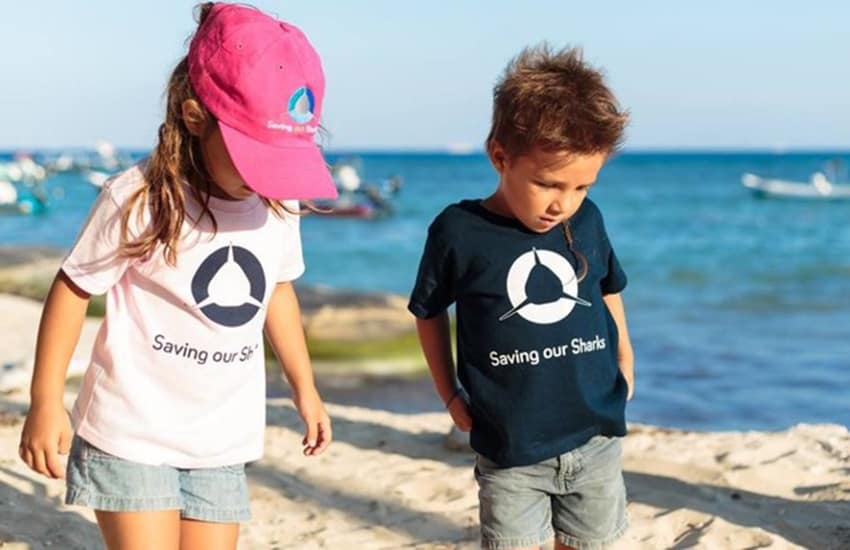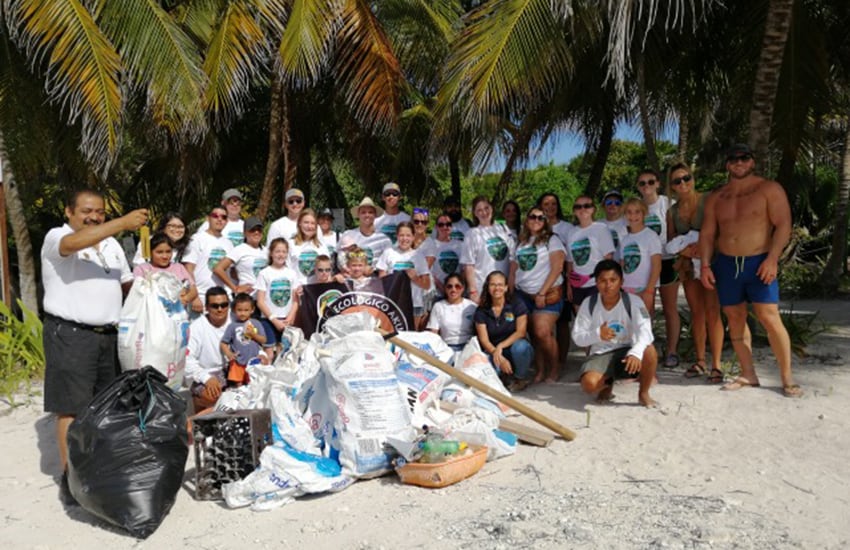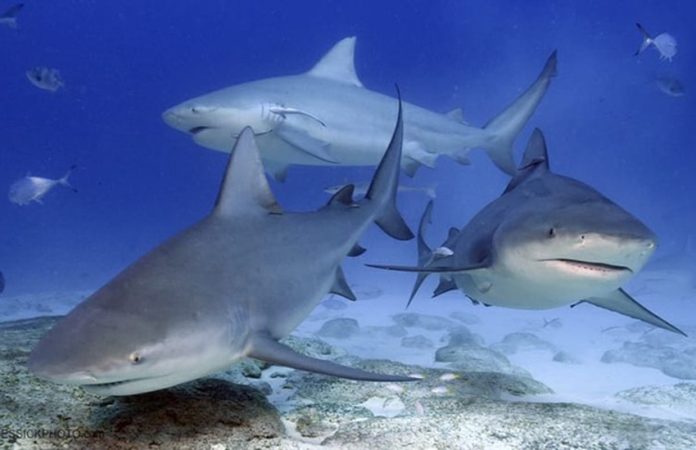Lying between the Gulf of Mexico to the west and north and the Caribbean Sea to the east, the waterways of the Yucatán peninsula are home to a spectacular array of life, both flora and fauna.
As with many places across the globe, however, the wildlife of the Yucatán has found itself inundated by the negative effects of human activity and climate change. The turtle and shark populations of the seas are declining at an alarmingly rapid rate, and the distinctive mangrove forests which ring the coastline are being repeatedly destroyed to make way for infrastructure development — despite being protected by national and international legislation.
Notwithstanding — and although we live in complex times environmentally — there has been good news of late as communities organize to address these issues head-on. Among the most notable news this month is the fact that three organizations in the Yucatán have been added to Plastic Oceans International’s #BlueCommunities program.
The #BlueCommunities initiative is a collaborative network of organizations working to improve waterways or mitigate against human damage in one way or another. Although the program is international, Mexico had a founding partner in a variety of local initiatives in Campeche and is now growing regionally with the addition of three new partners in the Yucatán.
“Our vision is to create a nationwide network of collaboration, a joining of hands,” says Salvador Ávila, executive director for Plastic Oceans Mexico. “A mangrove built of like-minded and like-hearted people and organizations standing strong against the rising storm of environmental desolation.”

The newest additions from Mexico’s southeast — the Akumal Ecological Center in Akumal; Saving Our Sharks in Playa del Carmen; and Flora, Fauna y Cultura de México in Quintana Roo — are the latest in a growing number of organizations joining this network of collaboration.
Susana Argüelles, project coordinator at Plastic Oceans Mexico, shares her excitement to be welcoming aboard the three new members.
“#BlueCommunities is a project of major importance because this work comes from the most pure and honest satisfaction of a united forward movement and the investment of time, effort, passion and love to a longlasting and sustainable project in favor of a common social and environmental well-being.”
Of the three organizations, the one most focused on a single location is the Akumal Ecological Center. Created in 1993 for the protection of marine and coastal life, the AEC has three key areas of focus: research, education, and outreach to promote the protection of marine biological diversity.
For Angélica Araceli Pech Constantino, communications and volunteering coordinator at AEC, the beauty of the #BlueCommunities initiatives lies in being able to communicate with a greater number of people. Being able to work hand in hand with other organizations that seek to transmit the urgency of environmental responsibility is critical.
“These #BlueCommunities link us with other organizations, companies and people who want to make this world more sustainable, always seeking to highlight the biological importance and ecosystem services of our oceans for societies.”

Likewise, for the team at Saving Our Sharks in Playa del Carmen it is the importance of building local networks of activism to spread a globally important message that initially drew them to #BlueCommunities.
“The program is important since it focuses on generating a network with formal organizations that affect their context, supporting their visibility and operation,” says coordinator Pamela Vázquez.
Having worked in Quintana Roo for 12 years in various sustainable development projects, Vázquez joined Saving Our Sharks four years ago to help consolidate their study and conservation of sharks in Playa del Carmen, as well as protect aquatic flora and fauna through research and environmental education.
“Generating networks brings us closer to other people with the same objectives,” she says, “and promotes collective action and meaningful exchanges between peers.”
The third organization to newly join Blue Communities from Yucatán is Flora, Fauna y Cultura de México. Theirs is a three-pronged approach to the protection of Mexico’s waterways: their projects focus on the conservation of sea turtles, community welfare and the conservation of green areas, including the mangroves and the reforestation of coastal dunes. Covering 120 kilometers of coastline from Canakihuic, south of Xcaret, to the Sian Ka’an Biosphere Reserve and 14 nesting beaches, theirs is the largest turtle conservation program of its kind in the country.
Critical to the union of these organizations under the banner of #BlueCommunities is that they refuse to be passive onlookers to the destruction of the marine environments of Mexico. Instead, they actively seek not just the preservation of that which is left but take a leap further by actively pursuing the restoration of the environment and its inhabitants: from coral reef to mangroves; from turtles to sharks.
“A bit dramatic, perhaps,” says Salvador Ávila, “but in my mind, I see us as a wall of interlocking arms against the rising tide of waste. And more than just a wall, more than an immovable body of resistance, I see a living organism not just bearing against the tide, but actually walking forward to reverse it.”
In these strained times, it is heartening to learn of the amazing efforts of real people on the ground, making change happen. Immovable body of resistance indeed.
Shannon Collins is an environment correspondent at Ninth Wave Global, an environmental organization and think tank. She writes from Campeche.
